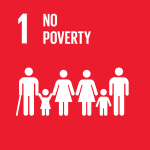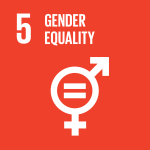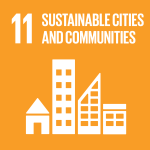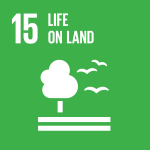
In Thailand’s Surin Province, silk farming and weaving have been vital livelihoods for generations. However, this rich tradition is increasingly at risk due to the growing impacts of climate change, with projections indicating rising temperatures and rainfall in the region, accompanied by an increased risk of river flooding. These environmental changes pose a serious threat to the cultivation of mulberry trees—the primary food source for silkworms—as both drought and flooding can impair tree growth. Silkworms, in turn, are highly sensitive to abrupt changes in temperature and humidity, resulting in higher mortality rates.
To address these challenges, the Foundation for Community-Soul (FCS), a grassroots nonprofit supported by the UNDP-Adaptation Fund Climate Innovation Accelerator (AFCIA), launched a comprehensive adaptation initiative in September 2023. The organization trained 300 community members from Phayaram, Kakoh and Nadee villages—covering nearly 30,000 acres of silk production land—in climate-resilient “smart farming” techniques, including storage solutions, sustainable land management and marketing strategies.

Community members from Surin Province attend a training by Foundation for Community-Soul. Photo: Foundation for Community-Soul
“The making of mulberry silk garments is a fine culture and tradition that has long been inherited. Now, it is being affected by climate change, so I want to learn about this and how it affects my life, to be able to improve the way the community adapts to climate impacts.” – Yothaka Boonmak, the first woman head of Phayaram Village and head of the Sericultural Women Group’s Phayaram Community Enterprise

Soom Yeunyong, a community member from Surin Province, posing with the silk cocoons. Photo: Foundation for Community-Soul
The initiative began with knowledge exchange. Ten representatives from the Phayaram silk community visited Japan’s UNESCO World Heritage sericulture (silk farming) site in Tomioka. Once the world's largest silk exporter, Japan holds a wealth of traditional sericulture knowledge. Of particular interest were methods to prevent humidity damage to silk threads and the use of Arafune Cold Storage (荒船風穴, Arafune Fūketsu), a natural refrigeration cave that delays silkworm egg hatching and allows multiple production cycles annually. These insights were directly applied upon returning to Surin.
Foundation for Community-Soul also introduced weather forecasting to help farmers optimize harvest timing and protect silkworms from adverse weather. A mobile app called FahFon was adopted by over 750 villagers in Phayaram, Kakoh and Tangjai, who now rely on it for daily updates. For example, in April 2024, the app successfully predicted a heatwave, prompting communities to prepare additional water reserves.
To preserve and share the knowledge gained through these efforts, community members documented their experiences on social media. Moreover, in May 2024, their work was featured in the Bangkok Post. The foundation followed up with a design thinking workshop attended by 32 villagers. Participants developed three digital marketing strategies to promote their silk products and six volunteers took the lead in establishing new channels on TikTok.
“We help develop knowledge and practice to adapt to climate change and connect with the local research institutes, and they will add more value to our produce. We work with the wisdom of the women.” – Orawan Yafa, Manager of Foundation for Community-Soul
Promoting gender equity in leadership
Silk production in Surin is traditionally led by women and girls, who hold expertise across the entire production cycle. However, these same women have historically lacked influence in broader village decision-making. To address this imbalance, Foundation for Community-Soul delivered gender equity training to 30 community members, including 15 local leaders.
“The training offers a [more inclusive] perspective to the local administration and villagers. It will remind them of gender balance considerations in whatever they do in the future.” Nannapat Dathong, a participant from the community

Villager Nannapat Dathong weaving with silks. Photo: Foundation for Community-Soul
Within six months, the impact was evident. Community leaders began actively promoting gender inclusiveness in daily activities, starting by ensuring equal participation in village meetings. During the May 2024 village head election in Phayaram, Yothaka Boonmak, was elected as the village’s first-ever female leader, winning by a wide margin of 255 to 44 votes.
The convergence of traditional expertise, knowledge exchange, modern technology and inclusive governance has opened new opportunities for Surin’s silk farmers. By embracing climate adaptation strategies and accessing broader markets, the community is forging a path toward resilience and sustainable growth for their traditional industry.

Traditional silk thread winding by Ling (Plok) Yeungyong, a community member of Surin province. Photo: Foundation for Community-Soul
*
Supported by financial contributions from the Adaptation Fund and the European Union, the UNDP-AFCIA programme has awarded 44 micro and small grants to locally led organizations across 33 countries worldwide, accelerating their innovative solutions to build resilience in the most vulnerable communities.
UNDP-AFCIA is one of two featured programmes under the Adaptation Innovation Marketplace (AIM), a multi-stakeholder strategic platform that promotes scaled-up adaptation at the local level.





